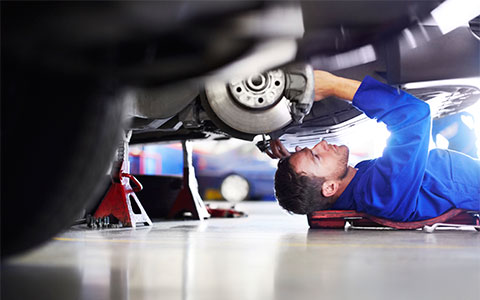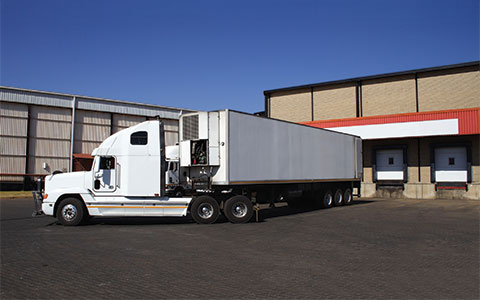Protecting Your Vehicle and Cargo from Theft


It’s not easy to put a price tag on vehicle and cargo thefts, but based on numbers from organizations like Freight Watch International, it’s a problem that costs trucking companies and the industry hundreds of millions of dollars each year. Since many thefts go unreported, that’s probably a conservative estimate.
Why is cargo theft a major problem? Because it’s easy. It’s so easy, in fact, that it can take less than a minute for a thief to break into your truck and drive away. If you leave your trailer unattended, the job is even easier. Unless you take some precautions, you may as well hand over your keys.
The majority of cargo thefts occur when drivers leave their trucks and cargo unattended at truck stops, shopping center parking lots and unsecured truck terminals. Weekend and holiday thefts are especially common. Partial thefts also occur regularly. Even if you stay with your truck, without some security, it’s easy for someone to break into your trailer while you are eating or sleeping.
A small but growing type of cargo crime involves identity theft. These jobs involve a thief posing as a legitimate carrier, using that company’s identity to pick up a load, and then driving away, never to be seen again.
Not long ago, unless you were transporting high-value goods like electronics or clothing, it was easy to believe you were safe. Not anymore. The nature of cargo theft has changed. Well-organized crime groups now steal just about any type of cargo, especially if it is hard to trace and easy to sell.
What can you do to help avoid becoming a victim of cargo theft? One rule of thumb to remember is: "freight at rest is freight at risk." Leaving a loaded trailer unattended is an open invitation to a thief. Here are some other precautions.
For drivers
- Lock your truck and trailer while parked. Use extra locks for added security. Park in well lit, busy areas.
- Remove the keys from your vehicle when it’s parked.
- Do not discuss the nature of your cargo with strangers.
- If you pick up high-target cargo, travel at least 250 miles before making any stops in case you are being followed. If a relay is needed, the transfer should take place face-to-face.
- High-target loads should never be separated from the tractor unless it is in a fenced, locked and secure area. Trailers should then be secured with a king pin lock or other security devices.
For owners and managers
- Complete employment and criminal background checks on new employees and contractors.
- Know your cargo and its value.
- Use experienced, senior drivers to transport high-target cargo.
- Develop formal security procedures and provide driver awareness training.
- Invest in quality locking devices. Trailer door locks, air cuff locks, king pin locks and steering column locks are examples of locks that can help convince criminals to move to more convenient targets.
- If possible, invest in covert Assisted Global Positioning System (AGPS) devices that can be placed in the cargo itself or wired into the trailer.
- Safeguard important registration and insurance documentation and check your Safety Measurement System (SMS) report regularly for fraudulent activity.
Cargo theft myths busted
- Cargo thieves only target high-value electronics, cigarettes, and fashion accessories. Not true. Cargo thieves have an appetite for just about anything that is difficult to trace and easy to sell. Examples: metals, construction materials, food items, tires, etc.
- Big metropolitan areas are the only places where vehicle and cargo theft are a problem. Wrong. While thefts occur more frequently in large metropolitan areas, especially port cities, vehicle and cargo thefts occur all over.
- It doesn’t matter what I do, if someone wants to steal my truck or trailer, there’s not much I can do about it. Sorry. Thieves couldn’t be happier that you think that way. The truth is, a few simple precautions can help make you less vulnerable to theft.
Doc#: LCT801




